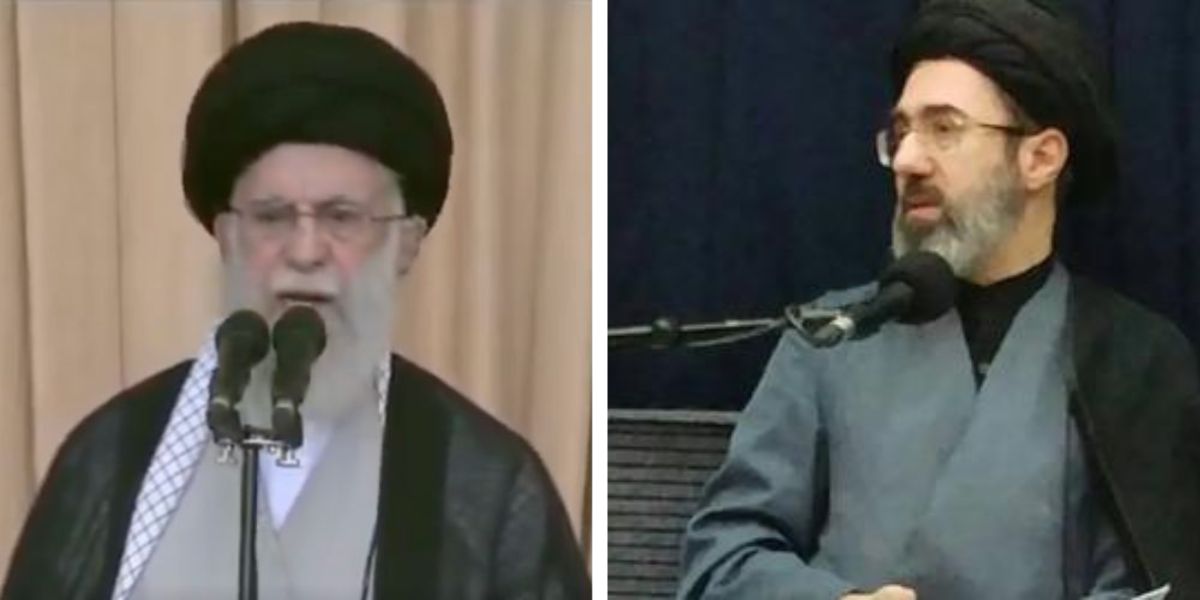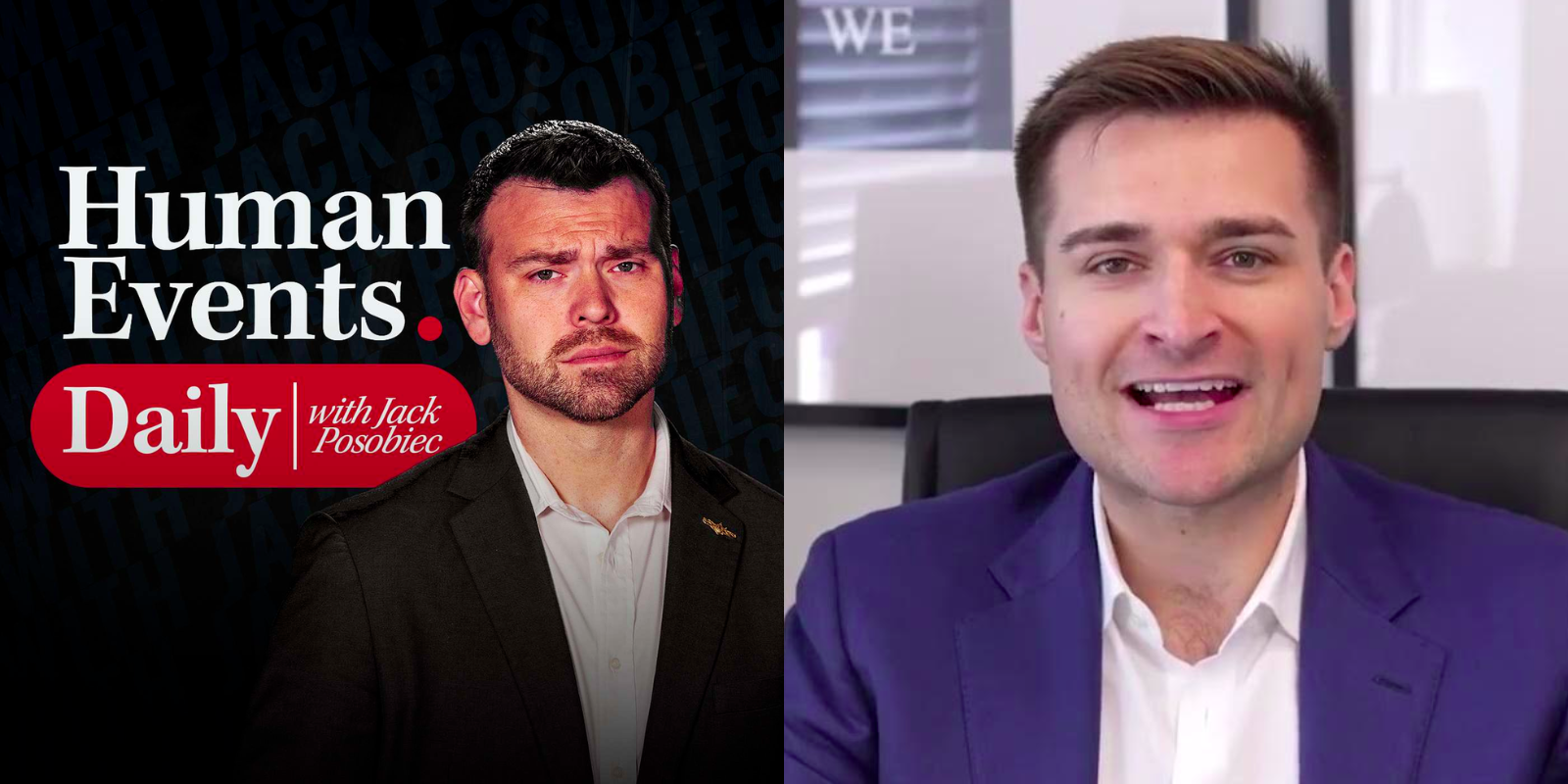Most of the debate on opinion polling in the United States is over whether the polls accurately measure public opinion and whether they reliably represent those measurements to the public. These are legitimate concerns, and there is good reason to suspect that many polls use flawed methods or selective data to arrive at their results. But to attack political polling by disputing the accuracy of its findings is to implicitly concede the legitimacy of the current role that polling plays in our democracy.
Fixating on the accuracy of the polls skips over the question of whether empirical polling is a good thing for our democracy. And it isn’t.
Even more problematic than the polls’ reliability is the fact that they are a means by which media entities and advocacy groups influence public policy. As such, we must question whether polls should play any meaningful part in democratic governance at all. Fixating on the accuracy of the polls skips over the question of whether empirical polling is a good thing for our democracy. And it isn’t.
The sort of polling that is common in America today is a relatively new phenomenon. Generally speaking, there are two kinds of polling: predictive polling (sometimes called “horse-race polling”) and what I refer to as prescriptive polling. The predictive polling surveys the public in an effort to predict which candidate will win an upcoming election. Historian and former Librarian of Congress, Daniel Boorstin, identifies the early 19th century as the time when the first American straw poll (ad hoc ballot polling) was conducted, but he notes that these polls were usually unscientific and unreliable. Modern forms of predictive polling can be traced back to when Alf Landon was widely favored to defeat Franklin Delano Roosevelt for the presidency back in 1936. The Literary Digest’s straw poll, based on ten million questionnaires mailed to its readers, was taken as a strong sign of an impending victory for Landon. This poll, and most others, were wrong. George Gallup, a professor of journalism and a newcomer to the polling game at that time, was not only one of the few pollsters who predicted a Roosevelt win, he also correctly predicted the degree of error in the models that anticipated a Landon victory.
While predictive polling remains common in election season, it is daily overshadowed by the second kind of polling: prescriptive polling, which purports to represent the range of opinion on a particular political issue and show how widely held each perspective is in the larger population. This type of polling was the sort that Gallup saw as having the most utility in a democracy. In the years after the FDR win, he refined his methods, increased his accuracy, and became the most familiar name in American polling.
But skepticism about the purposes of both forms of polling is warranted: why are predictions about who will win an election important? Why can’t we simply wait and see? Polling on the issues is often justified by the argument that we must know where the public stands so that the government can implement its policy preferences. Gallup viewed the frequent sampling and measuring of public opinion on the matters of the day as the only way elected officials could reliably know the will of the people they represent. Without scientific polling, he says with his co-author Saul Forbes Rae, there is no way to be sure that “the people have really spoken; the dictator […] can never be certain whether he is hearing the people’s voice or the echo of his own.”
The problem is that this presupposes that our leaders should always defer to the majority opinion; as I will show, American history reflects a deep ambivalence regarding whether and when the government should capitulate to the public will.
[caption id="attachment_189091" align="aligncenter" width="1920"] Gallup poll.[/caption]
Gallup poll.[/caption]
CLASSICAL DEMOCRACY AND THE SILENT CONSENSUS OF OPINION
Pollsters like Gallup modified democracy in the modern era, reinventing what public opinion means, how it is expressed, and what role it plays in the process of governance. Sophisticated, scientific methods of polling the public gave rise to an administrative vision of democracy: one that reduced the role of the common people to the expression of preferences (in elections and polls) and empowered government officials to put those preferences into practice. Although this new model was advanced on the grounds that it increased the political power of the average citizen, it has actually expanded the power of people in positions of institutional and governmental authority, over and against the power of the demos—the mass of common people referenced in the term democracy.
On issues where people had assumed widespread public agreement, polling sometimes reveals that the consensus was an illusion, a revelation that frequently encourages divisions along party and class lines.
The importance that Gallup and Rae attached to the “voice” of the people and their ability to “speak” is relatively new. Polling represents one method for allowing the will of the people to be spoken, but this method would have been strange to the citizens of earlier democratic societies. The ancient Greek democracy, for instance, had a much different concept of public opinion, which they called doxa, or endoxa (roughly translated: “common belief”). Aristotle, perhaps the most prominent Greek theorist of doxa, defined it as the things that are evident to everyone. In The Topics, he explains that because the ideas that fall into the category of doxa are widely held to be true, they represent a kind of knowledge that lies silently below public debate on policy concerns: he claims that a view that is “generally accepted” requires no debate, but instead is readily recognized as the accepted opinion.
Because beliefs that qualify as doxa are almost universally accepted, they do not need to be spoken. By the Aristotelian definition, then, a claim that would fall into the category of doxa in today’s America might be something like “individual rights are important.” We argue about what those rights should be, what limitations ought to be imposed on those rights, and how to adjudicate competing rights-based claims, but never about whether or not rights should exist. Given that virtually everyone agrees that individual rights are important, no one really needs to say so. In other words, doxa is that which goes without saying.
Modern theorists of doxa often echo Aristotle’s perspective. Ruth Amossy, a scholar of rhetoric, has demonstrated that there are various accounts of doxa today: some that view doxa as an aid to public deliberation, and others that claim that doxa is a threat because it can be used by authorities to manipulate the people. But one important similarity among these modern accounts must be emphasized: most contemporary thinkers agree with Aristotle that, for better or worse, doxa plays a silent, unspoken role in democratic deliberation. Social critic Michael McGee, for example, cautions that “doxa is silent, and it should be kept silent.”
But everyday Americans tend to disagree with the scholarly opinion that doxa should remain silent; they tend to favor Gallup’s view and often argue not only that public opinion must be spoken, but that it must be heeded by elected officials. In many ways, the popularization of Gallup and Rae’s vision for the role of public opinion has increased tensions between the American masses and the elite. On issues where people had assumed widespread public agreement, polling sometimes reveals that the consensus was an illusion, a revelation that frequently encourages divisions along party and class lines. Thus, previously “settled” ideas become new sites of contestation: it was only twenty years ago that a bipartisan majority favored the construction of a border wall, a measure that is now routinely lambasted as pointless (at best) or racist (at worst). In another example, the previously accepted legal accommodations for those whose religious beliefs conflicted with certain laws have now come under attack, with people calling for an end to the tax-exempt status of churches that refuse to wed gay couples.
Increasingly, though, both the polling itself and the circulation of the resulting data reflects an effort to influence public opinion rather than just measuring it.
Despite the ways that polling can actually inflame policy disagreements, by the mid-20th century, most Americans agreed that polling was an important way to make explicit the voice of the public—a voice that, according to polling enthusiasts like Gallup, could not be heard otherwise. Gallup and Rae cautioned that “unless the ordinary citizen can find channels of self-expression, the common man can become the forgotten man. When such a situation develops, when public opinion cannot get itself expressed, democracy lays itself open to its hostile critics. For public opinion can be a satisfactory guide only if we can hear it and, what is equally important, when it can hear itself” (emphasis added). Walter Lippmann, well-known political commentator and author of the seminal Public Opinion (1922), similarly wrote that “representative government [requires] an independent, expert organization for making the unseen facts intelligible to those who have to make the decisions” (emphasis added).
In statements like these, we see how modern democratic practice rejects the older assumption that doxa should remain unspoken. Gallup, Lippmann, and others propagated a new model that insisted upon an explication and quantification of public opinion. Those measurements, approximated through polling, came to embody the “voice” of the people, which was then packaged and distributed through mass media channels. Initially, the publication of polling data was justified on the grounds that it served to inform our representatives what our preferences were. Increasingly, though, both the polling itself and the circulation of the resulting data reflects an effort to influence public opinion rather than just measuring it.
[caption id="attachment_189092" align="aligncenter" width="1920"] Polls.[/caption]
Polls.[/caption]
OPINION UNMUTED: MODERN TECHNIQUES OF ADMINISTRATIVE DEMOCRACY
Some might assume that Gallup believed that polling would empower the common people, but he actually had a fairly low opinion of the average citizen. In an essay called “The Absorption Rate of Ideas” (1955), Gallup complains that the public makes “an almost studied attempt […] to avoid anything informative,” before lamenting that, “The sad part of it is that many persons who attended high school and college are as ignorant about the happenings of the world as those who never went beyond grade school.”
[T]he same experts in journalism circulate these measurements to the public and government, clarifying that the “people” have “spoken.”
Gallup’s patronizing elitism remains the dominant mindset among the powerful in America today. From the (usually unstated) perspective of the elite, our democracy should work as follows: events happen, and then experts in journalistic and academic fields explain these happenings to the public, leading them to the “correct” understanding of these events. After a sustained information campaign aimed at manufacturing doxa (or public opinion) that mirrors that of the experts, pollsters sample and survey the public to learn what “their” opinion is. When democracy is functioning properly (in the view of the elite), the polling process will reveal that a majority has accepted the “proper” preference on a given issue. Then, the same experts in journalism circulate these measurements to the public and government, clarifying that the “people” have “spoken.” Finally, elected officials have no choice but to enact policy that fulfills the “will of the people,” which invariably and neatly conforms to the will of the expert class.
Notice how the media’s dissemination and interpretation of polling data is generally accompanied by commentary that clarifies how the data should be received by the public; oddly, this is the same public whose opinions the polls claim to represent. Consider, for example, the regular features online that explain to the public how to “correctly” read the data that purports to reflect their opinions.
This ever-present instruction in how citizens should understand their own opinions shows the experts believe that “interpreting” public opinion itself demands expertise (and thus implies that the public ought not concern itself too much with what its opinions are). That common people don’t get too wrapped up in polling data is important because the administrative class that is responsible for implementing the public preference are often unconvinced by a statistical majority. Rather, when a majority rejects or deviates from the elite agenda for the nation, those measurements are interpreted as evidence that the public lacks the intelligence or compassion to determine a proper course for society. This situation calls for more “education” of the public—more effort to move their views in the “correct” direction.
Some examples are in order. Most readers will remember the role that polling data played in the lead-up to the Obergefell decision (2015) by the Supreme Court, which legalized gay marriage nationwide. In story after story, outlets reported that public opinion on the right to marry someone of the same sex had become increasingly favorable. It is true there was a dramatic shift in opinion on this topic over the last 20 years, but when discussing this shift, most commentators pretend that this was an organic development that occurred without interference. In other words, they usually don’t acknowledge that this change in public opinion was largely the result of determined advocacy efforts in American media and culture.
For some reason, findings of this sort are rarely publicized in our debate about gun control, a debate that mainstream media outlets are clearly eager to have...
Polling data itself was one tool that was used in this campaign to change public opinion in anticipation of a case like Obergefell. People prefer to see their views affirmed by others: when polling consistently shows that one’s own belief is shared by only a small minority, this creates an incentive for that person to change that belief (or at least to stop attesting to it in public contexts). By the time the Supreme Court heard a case on the topic of gay marriage, it was generally thought that the court was obligated to recognize the right to same-sex marriage at the national level—any other decision would have meant that our democracy was unresponsive to public dictates on policy.
But there are also instances where majority opinion does not seem to demand the same unconditional deference from our government. For example, few would know that Gallup finds that support for a handgun ban was near an all-time low in 2020: only 25% say such a ban should be enacted. For some reason, findings of this sort are rarely publicized in our debate about gun control, a debate that mainstream media outlets are clearly eager to have (provided the terms of the debate lead to an affirmation of their preferred policies, of course).
Consider another example: asked who they sympathize with in the conflict between the Israelis and Palestinians, the American majority consistently and significantly favors the Israelis, a trend that continues to hold in polling from this spring. Further, 75% of Americans view Israel favorably, compared to only 30% favorability toward the Palestinian Authority. Despite this overwhelming disparity, Gallup’s own headline manages to convey subtle regret for these facts, even finding a silver lining for the Palestinian cause: “Americans Still Favor Israel While Warming to Palestine.” And yet, these polling results failed to elicit media criticism of the Biden Administration’s policy in the region, which rejects Trump’s pro-Israel policy and makes concessions to the Palestinian Authority.
What we find, then, is that polling doesn’t simply serve to make public opinion known so that elected officials can implement the “will of the people.” Rather, polling serves to provide justification for the sociopolitical objectives of the left—objectives that are shared by most in the academic world (who conduct polls) and media (who disseminate polling data). When a majority of the public supports the desired policy of the institutional elites, that data will be widely shared and framed as evidence of an obligation to enact the public preference. But when a majority of the public rejects the desired policy of the cultural elite, the data will have limited distribution. If the information is publicly available, it will be ignored in the policy debates staged by the media. And if elites must acknowledge the findings, the numbers will be held up as evidence of the stupidity of the public—stupidity that justifies and necessitates an elite class who can make well-informed decisions in the “public interest.”
[caption id="attachment_189093" align="aligncenter" width="1920"] Polling.[/caption]
Polling.[/caption]
A VOICE UNHEEDED: DEMOCRACY WITHOUT A DEMOS
Issue-based polling in 2021 plays almost no role in empowering people in the way that advocates like Gallup claimed it would. An empirical, administrative democracy of the sort he helped bring into being instead deprives the masses of any meaningful political power. Rather than honoring the participatory role of the people in our democracy, their opinions are manipulated, conditioned, repackaged, and expressed in ways that ensure they advance the policy preferences of our oligarchs.
The basic function of polling is not informative (as pollsters insist) but is persuasive: the circulation of polling data is a way to modify the public opinion that it purports to measure. The findings then serve as evidence that the people have “had their say,” allowing the ruling class to decide how to leverage the people’s voice in a way that advances their own objectives. Although the polls might serve to amplify the people’s voice, the polling industry ultimately dissolves the potency of public opinion. The result is a democracy without a demos—a people with far less power than the term democracy implies.
 Engineering the “voice” of the people.
Engineering the “voice” of the people.





